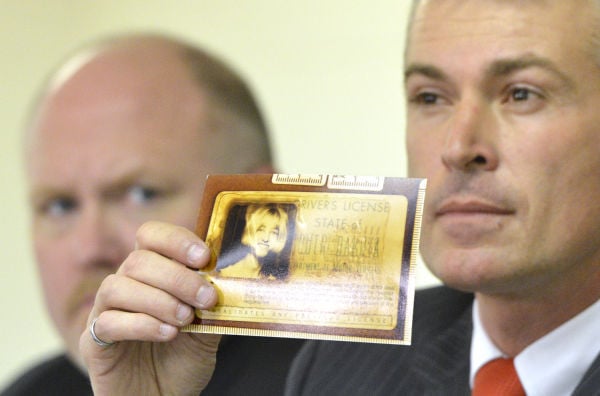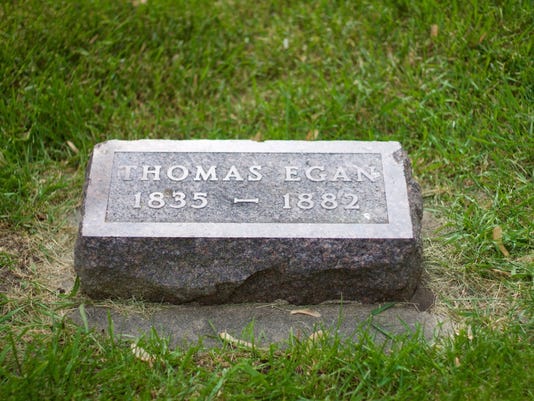Happy Halloween!
"It was a dark and stormy night; the rain fell in torrents —
except at occasional intervals, when it was checked by a violent gust of wind
which swept up the streets (for it is in London that our scene lies), rattling
along the housetops, and fiercely agitating the scanty flame of the lamps that
struggled against the darkness."
–Edward Bulwer-Lytton, Paul Clifford
Ah, yes. The cliched opening to end all cliched openings! "It was a dark and stormy night..." much parodied, and the author cited above, Edward Bulwer-Lytton ("Lord Lytton" to his friends, you peasants!) is more infamous for this tortured opening line than he is for helping establish the Canadian province of British Columbia, for turning down the crown of the Kingdom of Greece, or for coining such time-honored turns of phrase as "the pen is mightier than the sword," "the almighty dollar," and a host of others.
Funny story: Bulwer-Lytton didn't even coin this line. He just used it about twenty years after Washington Irving (Of "Sleepy Hollow" fame) actually coined it in his famously satiric work, A History of New York from the Beginning of the World to the
End of the Dutch Dynasty, by Diedrich Knickerbocker, in 1809.
And it was used over and over again throughout the 19th century (and in fact Paul Clifford, the novel in which Bulwer-Lytton employed it, was a runaway best-seller until literary tastes began to veer away from this sort melodramatic description). And what did Bulwer-Lytton get for his trouble?
For all of Bulwer-Lytton's opening being widely panned for generations, it does definitely accomplish one essential goal: it sets the scene quickly and vividly. The reader is dropped right into the middle of the action, and has a clear image of what is happening right away.
I had this on my mind in the run-up to this evening's blog post, especially in light of the fact that my turn in the rotation this year lands on Halloween. So I got to thinking on the idea, looked around for good examples of opening lines/scene-setting so effective that in some ways they served as almost another character.
I've written on this sort of thing before. If you're interested in my own unfiltered thoughts on this subject, you can find them here.
So since I've offered my thoughts on this topic before, I decided to solicit opinions from writer friends–all of whom are smarter than yours truly–and was thrilled by the response I got. I've recreated them below, completely unfiltered.
Some respondents gave a great opening line. Others cited an effective opening paragraph. Still others offered examples of what worked as well as holding forth articulately and compellingly as to why they found said examples so effect.
In other words, on this Samhain, the eve before that Feast of All Souls, I offer you a veritable smorgasbord of considered opinions on this subject.
And once you've finished with their opinions, go buy their books!
Read on...
 Matthew Quinn Martin:
Matthew Quinn Martin:
“Where’s Papa going with that ax?”
(First line from Charlotte’s Web)
 Curt Colbert:
Curt Colbert:
"I am all in a sea of wonders. I doubt; I fear; I think strange things,
which I dare not confess to my own soul."
– Bram Stoker, Dracula
Eve Fisher:
I have always loved this opening (From Dashiell Hammett's Red Harvest). Talk about scene as character...
"I first heard Personville called Poisonville by a
red-haired mucker named Hickey Dewey in the Big Ship in Butte. He also called
his shirt a shoit. I didn't think anything of what he had done to the city's
name. Later I heard men who could manage their r's give it the same
pronunciation. I still didn't see anything in it but the meaningless sort of
humor that used to make richardsnary the thieves' word for dictionary. A few
years later I went to Personville and learned better...
"The city wasn't pretty. Most of its builders had gone in for
gaudiness. Maybe they had been successful at first. Since then the smelters
whose brick stacks stuck up tall against a gloomy mountain to the south had
yellow-smoked everything into uniform dinginess. The result was an ugly city of
forty thousand people, set in an ugly notch between two ugly mountains that had
been all dirtied up by mining. Spread over this was a grimy sky that looked as
if it had come out of the smelters' stacks."
Nothing that goes on in this town is going to end well, is
it?
Sam Wiebe:
"There was a desert wind blowing that night. It
was one of those hot dry Santa Anas that come down through the mountain passes
and curl your hair and make your nerves jump and your skin itch. On nights like
that every booze party ends in a fight. Meek little wives feel the edge of the
carving knife and study their husbands' necks. Anything can happen. You can
even get a full glass of beer at a cocktail lounge."
–Raymond Chandler, "Red Wind"
Stacy Robinson:
"The night was clear and fine above us. The stars shone cold and bright, while a

half-moon bathed the whole scene in a soft, uncertain light. Before us lay the
dark bulk of the house, its serrated roof and bristling chimneys hard outlined
against the silver-spangled sky. Broad bars of golden light from the lower
windows stretched across the orchard and the moor. One of them was suddenly
shut off. The servants had left the kitchen. There only remained the lamp in
the dining-room where the two men, the murderous host and the unconscious
guest, still chatted over their cigars.
"Every minute that white woolly plain which covered one-half
of the moor was drifting closer and closer to the house. Already the first thin
wisps of it were curling across the golden square of the lighted window. The
farther wall of the orchard was already invisible, and the trees were standing
out of a swirl of white vapour. As we watched it the fog-wreaths came crawling
round both corners of the house and rolled slowly into one dense bank on which
the upper floor and the roof floated like a strange ship upon a shadowy sea.
Holmes struck his hand passionately upon the rock in front of us and stamped
his feet in his impatience.
–Sir Arthur Conan Doyle, The Hound of the Baskervilles
Bill Cameron:
I have a problem with authority, especially writing
authorities. I don’t care how illustrious they are. When Stephen King says
don’t use adverbs then by golly I’m gonna adverbly adverb till the turgidly
adverbial cows homely come.
So it may come as no surprise that one of my favorite
openings to one of my favorite books breaks a rule by another illustrious
writer. It literally opens with a dark and stormy night.
"The gray day ended as it began, too cold
for May, and threatening a storm. Now the wind swept out of the east, lashing
the sea. It drove the tide up through the harbor and past the town, into the
great salt marsh beyond."

Today,
The Mystery of the Witches’ Bridge would be
called a middle grade book, though that category didn’t exist as such in 1967
when it was first published. I first read it in fourth grade, and return to it
at least once a year. The opening continues, still quite stormy and nighty:
"Here, for half the course of the clock,
the sea would invade the land. The black tide, branching and rebranching into
its creeks and waterways, would fill and overflow the ancient beds of salt hay.
It would hide, for a time, the treacherous salt ponds. Then around midnight the
tide would halt, and slowly draw back into the sea.
"But all night long the wind and the
rain, like powers of darkness, would turn this wasteland into a wild witches’
sabbath."
You could never get away with opening a book like that
nowadays. An editor would Track Changes all that weather into oblivion, and if
you indie-pubbed it, the first Amazon review would be a 1-star rant citing
Elmore Leonard. (To be sure, Leonard offered exceptions to his “don’t open with
weather” one sentence after declaring it, and Stephen King uses plenty of
adverbs. Not even these literary deities suggested their rules were absolute.)
In a way, I sorta get it. I mean, we don’t even meet our
first person, the main character Dan, until page two—after yet another
paragraph following that witches’ sabbath bit. Certainly in this impatient era,
many folks wouldn’t bother reading to page two, though they might take the time
to make a Facebook post or tweet about it. To paraphrase another book opening
(one far more famous), it is a truth universally acknowledged that people on
the internet will assert their literary pet peeves are, well, universal truths.
And yet, for me, this book and this opening probably did
more to make me a writer than any other single work. Is it florid and
melodramatic? Yes. So am I. Is it a rebranching tidal meander that takes its
own damn time? Absolutely. And so do I. Would it be declared unreadable,
overwrought dreck by many self-appointed writing geniuses on the internet?
. . . Well, you see where I’m going here.
What this particular dark and stormy night does for me is
set a tone and establish a sense of place such that when we finally meet Dan,
we already understand and feel the sense of dread that infuses him as he enters
this turbulent landscape. And I’m not ashamed to say I love the hell out of it.

 Renee Patrick:
Renee Patrick:
California is the true protagonist of Ross Macdonald's Lew Archer novels, as
Archer would be the first to admit. In
The Drowning Pool, Archer takes a
dip in the ocean because the Pacific "was as close as I ever got to
cleanliness and freedom, as far as I ever got from all the people ... There was
nothing wrong with Southern California that a rise in the ocean level wouldn’t
cure." Macdonald could anatomize the Golden State like few others. Also
from
The Drowning Pool, here's Archer pulling into a suddenly prosperous burg:
"The oil wells from which the sulphur gas rose crowded the slopes on both
sides of the town. I could see them from the highway as I drove in: the
latticed triangles of the derricks where trees had grown, the oil-pumps nodding
and clanking where cattle had grazed. Since 'thirty-nine or 'forty, when I had
seen it last, the town had grown enormously, like a tumor. It had thrust out
shoots in all directions: blocks of match-box houses in raw new housing
developments and the real estate shacks to go with them, a half-mile gauntlet
of one-story buildings along the highway: veterinarians, chiropractors, beauty
shops, marketerias, restaurants, bars, liquor stores. There was a new
four-story hotel, a white frame gospel tabernacle, a bowling alley wide enough
to house a B-36. The main street had been transformed by glass brick, plastic,
neon. A quiet town in a sunny valley had hit the jackpot hard, and didn't know
what to do with itself at all."
Macdonald lovingly crafted an entire fictional California geography. Several of
his books are set in Pacific Point, which "rose from sea level in a gentle
slope, divided neatly into social tiers, like something a sociologist had built
to prove a theory" (
The Way Some People Die). In the penultimate Archer
novel
Sleeping Beauty, the town is under threat from a man-made ecological
disaster. Archer is returning from a getaway to Mazatlan when he spies oil out
of the airplane's window: "It lay on the blue water off Pacific Point in a
free-form slick that seemed miles wide and many miles long. An offshore oil
platform stood up out of its windward end like the metal handle of a dagger
that had stabbed the world and made it spill black blood."
Instead of driving home he heads to Pacific Point to witness the destruction
firsthand. "From the hill above the harbor, I could see the enormous slick
spreading like premature night across the sea. At its nearest it was perhaps a
thousand yards out, well beyond the dark brown kelp beds which formed a natural
barrier offshore. Workboats were moving back and forth, spraying the edges of
the spill with chemicals. They were the only boats I could see on the water. A
white plastic boom was strung across the harbor entrance, and gulls that looked
like white plastic whirled above it." Archer joins the handful of people
at the shore's edge, their mood grim. "They looked as if they were waiting
for the end of the world, or as if the end had come and they would never move
again."
Things get worse from there.

Jay Stringer:
Setting as character? I always come back to the idea that character
is something that is revealed. A trait. The nature of a person. Can a location
have a nature all of its own, or is it given one by the people who inhabit the
space? How can writers reveal the character of a setting?
My favourite example, by far, is from the Josh Stallings
heist novel Young Americans:
“One hundred feet past the Humboldt County line was a liquor
store/gas station. She did not buy skunk weed from the kid selling it out of
his wizard-painted van. She did make a phone call.”
That passage puts you in the moment. You know that place.
You know how it feels, and how the air smells. Not really menacing, I guess?
That depends on your relationship to weed, wizard-painted vans, or the guys who
inhabited them. I’m not here to judge.
If I’m going to try and play by the rules and share an
example that gives the
reader a sense of menace, I point you to the pure fear I
felt during a recent re-read of Stephen King’s Salem’s Lot. As a teenager, the
part that put my pants in the washing machine was Matt hearing the sound of a
bedroom window opening down the hall. Coming back to the book as an adult, in
the current political and social climate, I had to put the book down for a good
long while after this:
“They walked slowly from room to room, as if their bodies
had become glassy and fragile, and they turned on all the lights, and they did
not look out their windows. That above all else. They did not look out their
windows.”
By this point in the book, the vampires have started taking
over the town, walking the streets at night. The passage might not give you a
single description of the setting, but it reveals the hell out of the town’s
character.
And there you have it, something for everyone looking for input on the importance of setting in great storytelling. Thanks to all of my friends who chimed in. You guys are the best.
One last thing: this week Down and Out Books published the second of a pair of crime fiction anthologies I collected and edited. Both are inspired by the music of jazz-rock giants Steely Dan, and are thematically linked, but more than stand on their own as superb works of fiction. So if you get a chance, consider getting a copy of
A Beast Without A Name, available wherever you go to get your crime fiction fix.
Thanks, and Happy Halloween!
















































